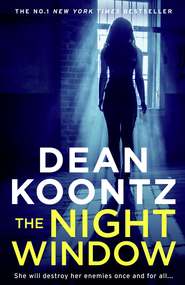По всем вопросам обращайтесь на: info@litportal.ru
(©) 2003-2025.
✖
Life Expectancy
Автор
Год написания книги
2019
Настройки чтения
Размер шрифта
Высота строк
Поля
“Or a garbage truck,” Mom suggested. “Those great lumbering things on these hilly streets—why, if the brakes let go, what’s to stop them? They’d go right through a house.”
“Bus, garbage truck, might even be a speeding hearse,” Grandma allowed.
“What reason would a hearse have to speed?” Dad asked.
“Speeding or not, if it was a hearse,” said Grandma, “wouldn’t that be ironic—run down by a hearse? God knows, life is often ironic in a way it’s never shown on television.”
“The viewing public could never handle it,” Mom said. “Their capacity for genuine irony is exhausted halfway through an episode of Murder,She Wrote.”
“What passes for irony on TV these days,” my dad noted, “is just poor plotting.”
I said, “I’m less spooked by garbage trucks than by those huge concrete mixers they drive to construction sites. I’m always sure the part that revolves is suddenly going to work loose of the truck, roll down the street, and flatten me.”
“All right,” Grandma Rowena said, “so it’s a concrete mixer Jimmy’s afraid of meeting up with.”
“Not afraid exactly,” I said. “Just leery.”
“So he stands on the sidewalk, looks left, then looks right, then looks left again, being cautious, taking his time—and because he delays there on the curb too long, he’s hit by a falling safe.”
In the interest of a healthy debate, my father was willing to entertain some rather exotic speculations, but this stretched his patience too far. “A falling safe? Where would it fall from?”
“From a tall building, of course,” Grandma said.
“There aren’t any tall buildings in Snow Village,” Dad gently protested.
“Rudy, dear,” Mom said, “I think you’re forgetting the Alpine Hotel.”
“That’s only four stories.”
“A safe dropped four stories would obliterate Jimmy,” Grandma insisted. To me, in a concerned tone, she said, “I’m sorry. Is this upsetting you, sweetheart?”
“Not at all, Grandma.”
“It’s the simple truth, I’m afraid.”
“I know, Grandma.”
“It would obliterate you.”
“Totally,” I agreed.
“But it’s such a final word—obliterate.”
“It sure does focus the mind.”
“I should’ve thought before I spoke. I should’ve said crushed.”
In lambent red candlelight, Weena had a Mona Lisa smile.
I reached across the table and patted her hand.
Being a pastry chef, required to mix many ingredients in precise measure, my father has a greater respect for mathematics and reason than do my mother and grandmother, who are more artistic in their temperaments and less slavishly devoted to logic than he is. “Why,” he asked, “would anyone raise a safe to the top of the Alpine Hotel?”
“Well, of course, to keep their valuables in,” said Grandma.
“Whose valuables?”
“The hotel’s valuables.”
Although Dad never triumphs in exchanges of this nature, he always remains hopeful that if only he persists, reason will prevail.
“Why,” he asked, “wouldn’t they put a big heavy safe on the ground floor? Why go to all the trouble of craning it to the roof?”
My mother said, “Because no doubt their valuables were on the top floor.”
In moments like these, I have never been quite sure if Mom shares more than a little of Weena’s cockeyed perspective on the world or if she’s playing with my father.
Her face is guileless. Her eyes are never evasive, and always limpid. She is by nature a straightforward woman. Her emotions are too clear for misinterpretation, and her intentions are never ambiguous.
Yet as Dad says, for a person so admirably open and direct by nature, she can turn inscrutable when it tickles her to, just as easily as throwing a light switch.
That’s one of the things he loves about her.
Our conversation continued through an endive salad with pears, walnuts, and crumbled blue cheese, followed by filet mignon on a bed of potato-and-onion pancakes, with asparagus on the side.
Before Dad got up to roll the dessert cart in from the kitchen, we had agreed that, for the momentous day ahead, I should keep to my usual vacation routine. With caution. But not too much caution.
Midnight arrived.
September 15 began.
Nothing happened right away.
“Maybe nothing will,” Mom said.
“Something will,” Grandma disagreed, and smacked her lips. “Something will.”
If I had not been obliterated or even badly crushed by nine o’clock the next evening, we would meet here for dinner again. Together, we would break bread while remaining alert for the whiff of natural gas and the drone of a descending airliner.
Now, after demidessert, followed by a full dessert, followed by petits fours, all accompanied by oceans of coffee, Dad went off to work, and I helped with the kitchen cleanup.
Then at one-thirty in the morning, I retired to the living room to read a new book for which I had high expectations. I have a great fondness for murder mysteries.
On the first page, a victim was found chopped up and packed in a trunk. His name was Jim.
I put that book aside, selected another from the stack on the coffee table, and returned to my armchair.
A beautiful dead blonde stared from the book jacket, strangled with an antique Japanese obi knotted colorfully around her throat.











